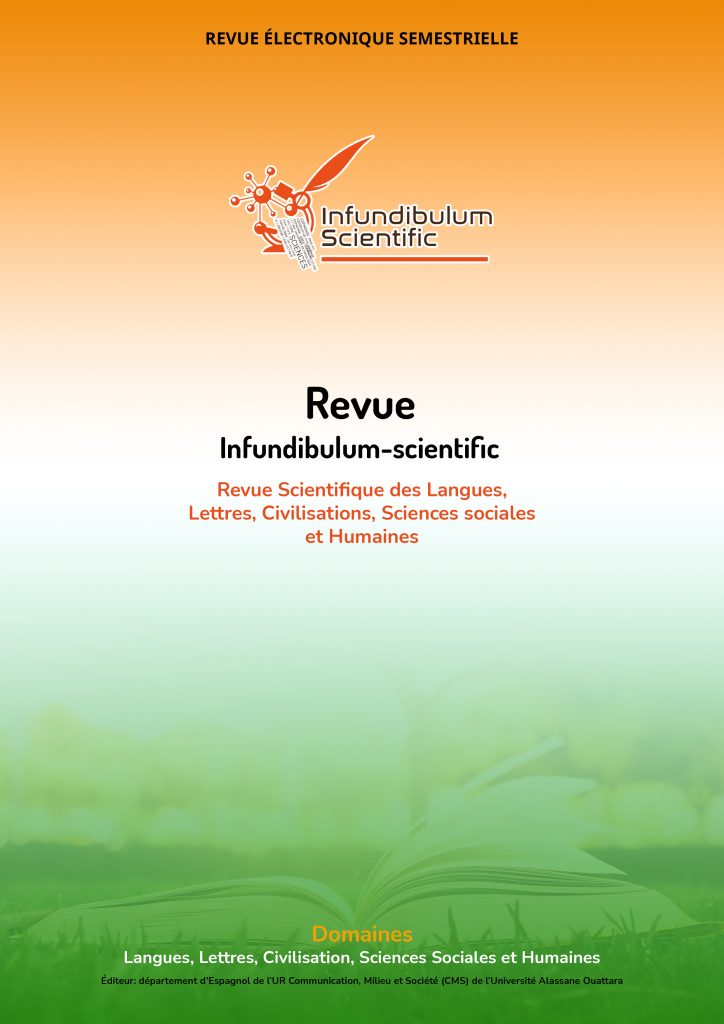L’IMAGE, LE SON ET LA REVUE DE PRESSE DANS LE VENTRE DE L’ATLANTIQUE DE FATOU DIOME ET LES NAUFRAGÉS DE L’INTELLIGENCE DE JEAN-MARIE ADIAFFI : ENTRE DOCUFICTION ET LECTURE INTERMÉDIALE
Résumé
L’envahissement de la société contemporaine par les médias n’épargne pas les œuvres romanesques. Cette intrusion ostentatoire des techniques de média dans le roman fait de l’intermédialité un nouveau mode d’écriture de plus en plus convoqué par les romanciers africains. Un tel souci de renouveler le régime de la représentation romanesque nous a inspiré la réflexion suivante : « L’image, le son et la revue dans Le Ventre de l’Atlantique de Fatou Diome et Les Naufragés de l’intelligence de Jean-Marie Adiaffi : entre docufiction et lecture intermédiale postmoderne ». L’objectif de cette contribution est de montrer qu’écrire avec l’inscription de l’intermédialité dans le tissu romanesque exige de nouvelles postures chez le lecteur. Il s’est agi, spécifiquement, d’analyser l’impact des outils médiatiques sur le lecteur dans la réception du roman. Pour mener à bien cette étude, qui pose le postulat que le roman africain francophone est un maillage intermédial de fiction et documentaire, nous avons utilisé les méthodes sociocritique et narratologique pour analyser comment la théorisation des notions de docufiction et de lecture intermédiale induit une approche d’intermédialité comme une stratégie d’écriture et de posture lectorale intermédiale chez Fatou Diome et Jean-Marie Adiaffi.
Abstract
The invasion of contemporary society by the media does not spare romantic works. This ostentatious intrusion of media techniques into the novel makes intermediality a new mode of writing increasingly invoked by African novelists. Such a concern to renew the regime of novelistic representation inspired us to reflect on the following: « The image, sound and review in Le Ventre de l’Atlantique by Fatou Diome and Les Naufragés de l’intelligence by Jean-Marie Adiaffi : between docufiction and postmodern intermedial reading”. The objective of this contribution is to show that writing with the inscription of intermediality in the fabric of the novel requires new postures from the reader. It was a question, specifically, of analyzing the impact of media tools on the reader in the reception of the novel. To carry out this study, which poses the postulate that the French-speaking African novel is an intermedial mesh of fiction and documentary, we used sociocritical and narratological methods to analyze how the theorization of the notions of docufiction and intermedial reading induces an approach to intermediality as a writing strategy and intermedial electoral posture in Fatou Diome and Jean-Marie Adiaffi.

Mots-clés
docufiction, intermédialité, posture lectorale, roman, stratégie d’écriture
